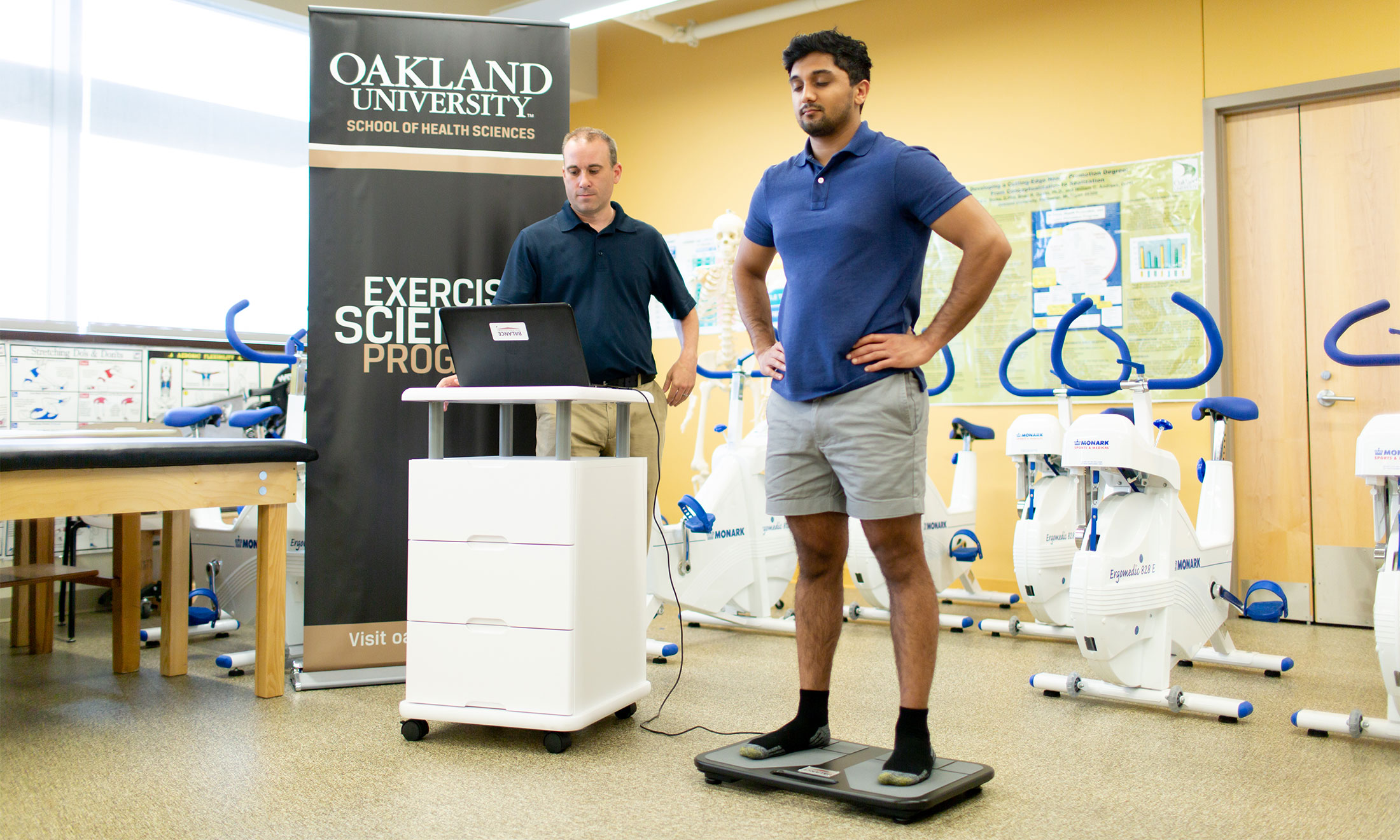Professor’s study helps athletic trainers improve concussion management
The study by Daniel J. Goble, Ph.D., associate professor of exercise science, has been published in the Journal of Athletic Training.
A new study by Daniel J. Goble, Ph.D., associate professor of exercise science, has been published in the Journal of Athletic Training. The study examined more than 10,000 male and female athletes, ages 8 to 21, to provide normative data for the BTrackS Balance Test (BBT), a tool that Dr. Goble invented for concussion balance testing.
“Millions of concussions are sustained each year as a result of sports, and poor assessment tools sometimes allow athletes to return to play before they are ready,” Dr. Goble explained. “This situation exposes them to second impact syndrome, a condition that can result in catastrophic, long-term brain damage or even death.”
To manage sport-related concussion, the most recent consensus statement by the Concussion in Sport Group advocates balance testing as one component. The best practice for concussion management typically involves comparing post-concussion test results with results obtained at baseline.
Dr. Goble’s study provides the largest database of athlete balance results ever published and uses assessment technology twice as effective as the current standard used by 85 percent of athletic trainers. The BBT uses low-cost force-plate technology to objectively measure postural sway (i.e. balance). Postural sway is a biomechanical measure of balance based on how much the body moves back and forth when trying to stand still.
The study’s normative data can help athletic trainers spot “malingering,” which is when athletes don't try hard on baseline tests to improve chances of later passing tests when concussed. The data can also help identify athletes with unknown neurological conditions before the season starts, as well as athletes in need of balance training.
The study also noted that postural sway was reduced (i.e., balance improved) as athlete age increased, and was less in female athletes than in male athletes. The journal article can be viewed here.


 March 20, 2019
March 20, 2019

